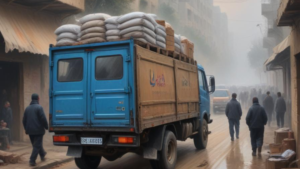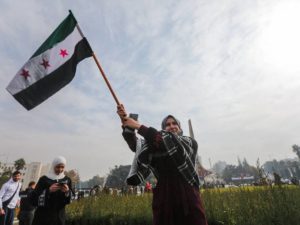UAI was created to challenge war-related inhumanity and the erosion of the global asylum regime. The purpose of this report is to update UAI members and all concerned stakeholders on efforts to maintain a spotlight on the immorality of a policy of collective punishment that is most harmful for at-risk, vulnerable Afghans, a large proportion of whom are women and children. It summarizes the evolving situation and measures that can be taken to address egregious levels of avoidable suffering. It calls on anyone perturbed by the situation in Afghanistan to engage, locally and globally, as appropriate, to bring an end to a policy of manufactured poverty and disregard for the fundamental rights of Afghan citizens.
Introduction
Life, for most Afghans, is a desperate struggle for survival. Destitution and deprivation are the norm as the plight of Afghans is over-shadowed by more high-profile, and equally catastrophic crises such as Gaza, Sudan, and the stalemated war in Ukraine. The return of the Taliban to Kabul in August 2021, after decades of armed conflict, dysfunctional governance, widespread impunity, and growing levels of poverty led to an abrupt rupture in external aid and budgetary support. In addition to long-standing sanctions against the Taliban, the inauguration of the newly installed Islamic Emirate of Afghanistan (IEA) resulted in restrictions that curbed the ability of Da Afghanistan Bank (DAB), the central bank, to deliver on its responsibilities in relation to the economy and the banking sector.
Afghans are now faced with a multifaceted crisis that includes:
- Profound levels of poverty, hunger, debt and a much-reduced health care system;
- Taliban edicts that formalize and exacerbate deep-rooted discrimination against women and girls that affects practically all aspects of their lives and their role in society. This includes limited access to education beyond primary school level, few employment opportunities outside the home, and various prohibitions that have greatly erased the presence of women in the public sphere; and
- External policies such as those of Western powers that have pursued an isolationist and impoverishment agenda including, in particular, the seizure of Afghanistan’s sovereign reserves, namely US$9.1 billion now held in US and European banks. This has cratered the economy and banking system and is best understood as economic warfare.
Poverty, Deprivation, Displacement and …
The end of warfare after decades of armed conflict was a welcome change for most Afghans. However, the absence of a peace dividend meant no end to the daily struggle of a hand-to-mouth existence. The UN Development Programme advised in January that some 85% of Afghans live on less than one dollar a day. The global Integrated Food Security Phase Classification System (IPC) noted (November 2023) that the main drivers of hunger in Afghanistan included “challenging economic conditions, high unemployment rates, reduced livelihood opportunities and decreased remittances.” It projected a further deterioration in food insecurity with 36% of people, some 15.8 million Afghans, affected. OCHA, the UN Office for the Coordination of Humanitarian Affairs calculated that more than half the population, some 23.7 million Afghans would require humanitarian support in 2024. In contrast to earlier years, humanitarian donors significantly cut their support for Afghanistan last year when the US$3.2 billion humanitarian appeal received only 41.9 per cent of funding required. Drastic aid cuts occurred while the country struggles to cope with some 6.3 million individuals – one in seven Afghans – trapped in protracted displacement. The number of up-rooted Afghans increased dramatically during the end months of 2023 when half a million refugees were forcibly returned from Pakistan.
A well-known seismic zone, Afghanistan suffered a series of deadly and destructive earthquakes last year with Herat the most severely hit area. Thousands were killed and injured as many villages were flattened. Drought and flash floods also took a deadly toll, a routine annual experience, thanks in part to poor levels of preparedness, a critical process that lacks financial support even as the effects of the crisis climate intensifies.
In sum, as donors significantly reduce their support while poverty deepens and humanitarian needs grow, it becomes ever more apparent that Afghans need a functioning economy including a credible macro-economic framework to maintain trade and price stability.
Continued Economic Evisceration
The hobbling of the DAB by obstructing its access to the country’s sovereign reserves is likely to be compounded by the reduced availability of US cash dollars that have, in recent times, been flown in by the UN to support the work of aid agencies; this helped the DAB to hold regular currency auctions. Such auctions are vital in maintaining the stability of the local currency, the afghani, and reducing inflationary forces. All in all, it appears that the DAB is doing a reasonable job in its straitened circumstances. It was instrumental, for example, in helping address liquidity issues when newly printed bank notes became available last year. However, the results of a USAID funded audit of the DAB were not released last year although it is understood to be favourable overall. The DAB Board has also acknowledged the need for capacity building including in relation to anti-money laundering (AML) and combatting the financing of terrorism (CFT) policies and capabilities.
Nonetheless, the US$3.5 billion that was transferred to the ‘Fund for the Afghan People’ in Switzerland in September 2022 remains in deep freeze. This means that the political agenda which resulted in the seizure of Afghanistan’s external reserves remains in place rather than acknowledging the ethical and strategic importance of recapitalizing the DAB in a professional and monitored fashion. The latest meeting of the Board of Trustees in January decided to pay Afghanistan’s outstanding arrears to the Asian Development Bank (ADB); this will enable the resumption of some development projects, a move that echoes that of the World Bank. It is understood that the Trustees decision is specific to the ADB given concerns that Afghan foreign reserves must be used exclusively for the recapitalization of the DAB. Minutes of the meeting noted that the Fund had accrued US$205 million in interest bringing the Fund’s total assets to US$3.74 billion at the end of 2023.
UAI Action and Advocacy
UAI has a dedicated Afghanistan Task Team whose members have worked for significant periods in and on the country and use their individual networks to stay informed and engaged. This includes participation in, or organization of, panel events, webinars and round table discussions involving civil society actors, academia, and media personnel. UAI is an active member of different networks such as the US-based Unfreeze Coalition that is also preoccupied with the issues thrown up by the seizure of Afghanistan’s external reserves. UAI has been consulted on various studies such as those initiated by humanitarian entities last year when a major preoccupation was maintaining principled humanitarian action, including in relation to retaining female personnel, by taking account of experience during the first Taliban Emirate in the late 1990s. More recently, the independent assessment of UNAMA and lead up to the UN Doha Conference in February triggered various bilateral and other consultations.
It is difficult for journalist to secure visas to visit Afghanistan but UAI remains in touch with diverse civil society and media colleagues interested in the evolving situation in the country as well as different approaches by regional and international states to engaging with the de facto authorities.
UAI has been in periodic touch with the ‘Fund for the Afghan People’ secretariat that was strengthened last year with the appointment of an Executive Secretary. The Fund is currently in the process of setting up an International Advisory Committee; UAI was requested to help identify potential members and contacted Afghan and other individuals with the appropriate profile.
UAI has updated and routinely adds to its dedicated page on the Frozen Funds Campaign that is a resource for journalists, researchers, and others. It has separate sections for UAI Statements, Blogs, and media articles; see https://www.against-inhumanity.org/campaigns/afghanistan-campaign/
UAI has been active in preparing Statements setting out its position on the Frozen Funds problem, mobilizing blogs, and routinely sharing information through its Newsletter as well as social media. It is worth noting that everyone who is interested in seeing the Newsletter and other UAI communications can do so by signing up to receive it; see link on UAI’s home page: https://www.against-inhumanity.org/
Conclusion
It is difficult to maintain productive attention to the continuing and accumulated harm that vulnerable Afghans are made to endure. Such harm is the result of decades of warfare perpetuated by Afghan armed actors and their international backers, the repressive nature of the Taliban regime with its diehard ideological antagonism to female identity including the rights of girls and women, and the seizure of external reserves – the property of the Afghan people – that is part of a broader agenda to isolate and demonize the de facto authorities whatever the consequences for hungry, at-risk Afghans.
UAI is appalled by all instances of collective punishment whatever the source given the ramifications for those who are directly affected. It appears that the IEA is getting more extreme in its repressive and discriminatory polices while, simultaneously, it shows it has some skills in managing the economy, collecting revenue, and significantly reducing the cultivation of poppies and the trade in opium.
Prior experience underlies the need to engage, however complicated the process, while supporting civil society actors and development programming that is crucial for employment and debt reduction. Engagement does not mean approval of the regime just as the Frozen Funds policy that pauperizes Afghans does not help the situation of women and girls. The vacuity and moral bankruptcy of policies that penalize a population because they are poor because powerful countries do not like the status quo that these nations have helped engineer, underlines the importance of challenging the Frozen Funds agenda. UAI will persist in doing so and invites all concerned individuals and entities to use their influence, local and global, to reverse the “might is right” calculation that cripples the Afghan economy and impoverishes millions of marginalized Afghans.
27 March 2024











